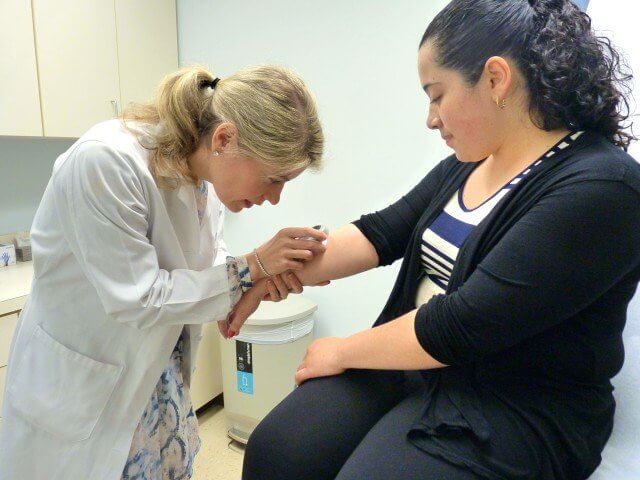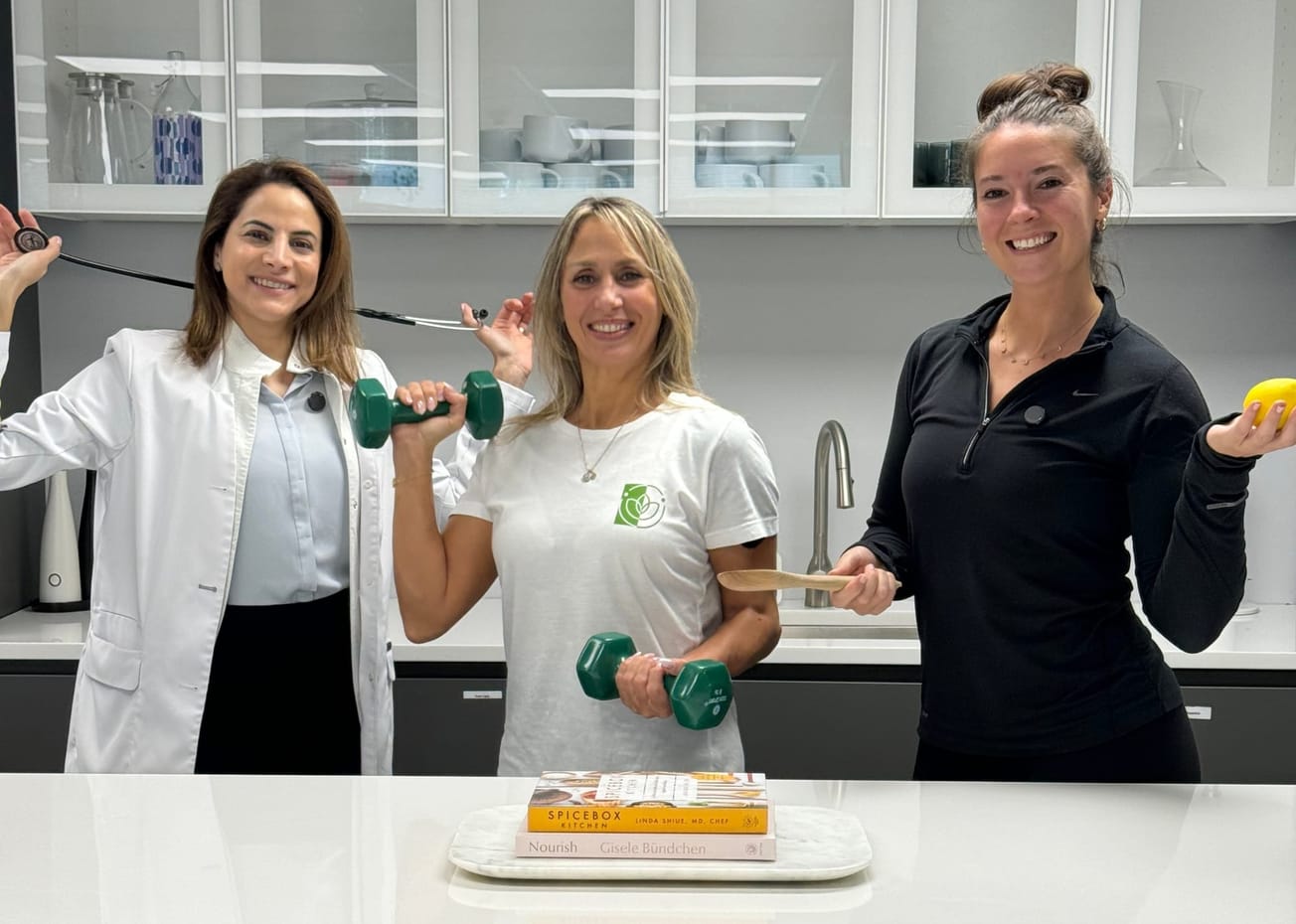By Robin Stoloff
Skin is the largest organ in our body and the first thing people notice about us. Which is why we want to keep it looking healthy and firm. It’s no secret that lifestyle habits play a big role in the appearance of our skin, but so does our skin care routine. Skincare is a multi-billion-dollar industry, promising a complexion that appears more youthful, tighter and smoother. So, what works and what is just hype? I decided to go right to the source and talk with a local skincare expert. Dr. Kelly Kane is a dermatologist practicing in Somers Point, and she shares her own skincare routine, as well as some tips on keeping our skin healthy from the inside out.

Morning
Because winter can wreak havoc on our skin, Dr. Kane recommends changing our skincare routine in the colder months to reduce the dryness associated with cold air. First and foremost, she tries to keep her skincare routine simple. As a mom of three young kids with a busy medical practice, she knows what it is like to have limited time.
She starts her morning with an oil-based cleanser called Isdinceutics Essential Cleansing. After she pats her face dry, she uses an antioxidant, called Phloretin CF by SkinCeuticals.
Her final step is sunscreen. She recommends using it every day even in the winter. The sun’s rays can penetrate the windows in our home, office or the the side windows of our car. Believe it or not, blue light from our cell phone or computer screens and overhead fluorescent lights can increase the production of melanin and cause melasma, a condition that causes dark skin discoloration. Even on cloudy days, the sun’s powerful rays can damage our skin. For the most effective protection, Dr. Kane recommends a daily broad-spectrum sunscreen with an SPF greater than 30. She uses physical blockers, such as zinc oxide or titanium dioxide, which are good for sensitive skin. Gone are the days of the pasty film or white noses of the zinc oxide in years past. Today’s tinted sunscreens go on smoother and have the added benefit of providing a little color, similar to foundation. The brand she is using now is Eryfotona Ageless by Isdin.

Evening
Dr. Kane uses the same cleanser in the evening, followed by prescription strength Retin-A, a product she loves. Considered a gold standard in skincare, Retin-A improves our overall texture, increases cell turnover and decreases pore size. Retinol products are also available over the counter. Since Retin-A can be drying, her final nighttime step is a moisturizer. She is using another Isdin product called Hyaluronic Concentrate. She also reminds us to use products on your neck and chest.
Some Other Tips
She also uses a cleanser that contains glycolic acid to increase cell turnover, called Glycolic Renewal Cleanser by SkinCeuticals. This can be irritating, so she limits this product to twice a week.
Since she spends a lot of time outdoors at the beach, she is always combatting lentigines or browns spot. One product she calls “awesome” is a serum called Discoloration Defense by SkinCeuticals, which is a blend of tranexamic acid, niacinamide and kojic acid.
As far as eye products, she recommends an eye cream with caffeine to reduce puffiness in the morning. Dr. Kane also reminds us to take care of our lips, especially in the winter. Vaseline or Aquafor on our lips can help prevent chapping.
As we know, skin care products can be quite costly, but Dr. Kane notes that we do not have to spend a fortune. Some over-the-counter products she praises are Neutrogena Hydra Boost which contains hyaluronic acid, and Cetaphil’s Gentle Skin Cleanser. CeraVe AM, which contains sunscreen, and CeraVe PM are two affordable options for daily moisturizers.
Since the winter weather dries our skin, she advises us to take luke-warm, quick showers with a gentle cleanser and use the 30-second rule. When you get out of the shower, you pat yourself dry, but still leave your body a little wet. Within 30 seconds, you apply your moisturizer to your entire body to seal-in the moisture on your skin. She likes creams better than lotions, which she calls “wimpy.” It is especially important to use a thick cream in the winter such as CeraVe or Vanicream moisturizers.

Skin Cancer Detection
Skin cancer is the most common type of cancer in our country, but it is also one of the most preventable. Check your skin once a month. Use a mirror or ask your significant other to check your back, and the back of your legs. Use the ABCDE rule for moles — A- Asymmetry, B- Border is Irregular, C- Color is Changing, D- Diameter Bigger than a Pencil Eraser and E- Evolving — the spot looks different from the rest. Remember, skin cancer can appear anywhere on the body, even in areas that don’t get any sun.
Of course, we all know we should limit sun exposure, especially between 10 am and 2 pm when the sun is strongest. Most of the sun we receive in our lives is before the age of 18 and our skin remembers every bit of it, especially bad sunburns. That is why we need to make sure we take steps to protect our kids in the sun, even in the winter months.
What we put on our skin is just as important as what we put in our bodies. Smoking is one of the worst habits for our health and our skin. It causes dull, lifeless skin, premature aging and wrinkles. A diet lacking in nutrients also affects the appearance of our skin. Regular physical activity promotes healthy blood circulation which can give our skin a healthy glow.
Bottom line, habits that are good for our health are also good for our skin. Beautiful, healthy skin comes from the inside as well as the outside.











